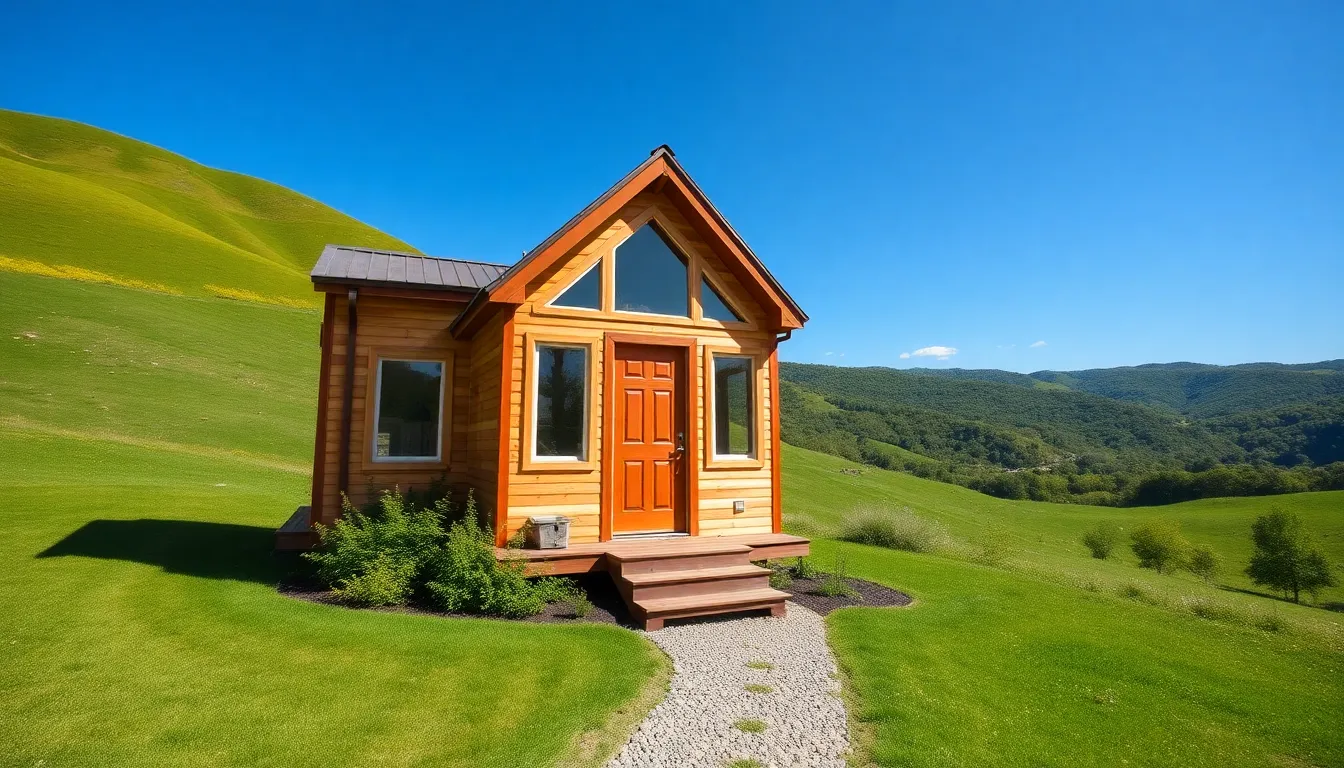Navigating the world of home loans can feel like trying to find a needle in a haystack, especially when it comes to manufactured homes. But fear not! FHA manufactured home loans are here to save the day, offering a lifeline to those looking for affordable housing options. With a sprinkle of government backing and a dash of flexibility, these loans make homeownership not just a dream, but a reality.
Table of Contents
ToggleOverview of FHA Manufactured Home Loans
FHA manufactured home loans provide an accessible option for individuals seeking to purchase manufactured homes. These loans combine the advantages of federal support with flexible terms that enhance homeownership opportunities.
What Are FHA Manufactured Home Loans?
FHA manufactured home loans are government-backed mortgages specifically designed for buying manufactured homes. These loans cater to various borrower needs while promoting affordable housing solutions. Targeting low-to-moderate income buyers, the loans won’t require a large down payment, making homeownership attainable. Eligible borrowers can also secure refinancing options through FHA guidelines.
Key Features and Benefits
Several key features distinguish FHA manufactured home loans from other mortgage types. First, borrowers benefit from lower down payment requirements, often as little as 3.5%. Additionally, credit score thresholds tend to be more lenient, accommodating a wider range of financial situations. Another advantage lies in the competitive interest rates offered through FHA programs. These attributes contribute to making homeownership feasible for many individuals and families.
Eligibility Requirements
FHA manufactured home loans have specific eligibility criteria for borrowers and properties. Understanding these requirements helps determine if these loans fit individual situations.
Borrower Qualifications
FHA manufactured home loans target low-to-moderate income buyers. Borrowers must have a minimum credit score of 580 to access the standard 3.5% down payment option. Those with scores between 500 and 579 may qualify with a higher down payment of 10%. Income verification is crucial, as lenders assess debt-to-income ratios to ensure affordability. Borrowers must also demonstrate a consistent employment history, ideally spanning two years in the same field.
Property Criteria
FHA guidelines stipulate that the manufactured home must comply with specific safety and quality standards. Homes require a permanent foundation and must adhere to local building codes. Additionally, the home should be classified as real estate and must not be in a leased space for more than 24 months. Properties must meet minimum value criteria, which can vary by location, ensuring they align with FHA regulations. Eligible homes can be single-family residences or multi-section models, expanding options for prospective buyers.
Application Process
The application process for FHA manufactured home loans involves several key steps. Understanding each step enables borrowers to navigate the process smoothly.
Step-by-Step Guide
- Prequalification: Borrowers start by prequalifying through a lender to assess their budget and home buying options.
- Find a Property: Identifying a suitable manufactured home that meets FHA’s guidelines follows prequalification.
- Apply for a Loan: Submitting a formal loan application is essential, including vital information about income and credit.
- Loan Processing: During this stage, lenders review applications, verify documents, and underwrite the loan.
- Closing: Once approved, borrowers finalize the loan at a closing meeting, signing necessary documents and officially becoming homeowners.
Required Documentation
Specific documents are necessary to complete the FHA manufactured home loan application process.
- Identification: Borrowers must provide a government-issued ID, like a driver’s license or passport.
- Income Verification: Recent pay stubs, tax returns, and W-2s validate earnings.
- Credit History: Lenders require a credit report to assess creditworthiness.
- Property Documents: Copies of the purchase agreement and any existing property documentation, including titles or manufacturer’s certificates, must be submitted.
- Additional Documentation: Borrowers may need bank statements, employment verification letters, and any necessary divorce decrees if applicable.
Gathering these materials expedites the application process, ensuring compliance with FHA guidelines.
Financing Options
FHA manufactured home loans offer various financing options tailored for aspiring homeowners. Specifically, the loan structure includes features that promote affordability.
Loan Limits and Terms
Loan limits vary based on the location and size of the manufactured home. For 2023, the maximum loan amount can reach up to $970,800 in high-cost areas. Terms typically span 15 to 30 years, allowing flexibility in managing mortgage payments. Borrowers can choose between fixed-rate or adjustable-rate options, enhancing financial planning strategies. Additionally, these loans accommodate various property types, from single-section to multi-section homes, ensuring a broader range of choices for buyers.
Interest Rates and Fees
Interest rates associated with FHA manufactured home loans are generally competitive, often influenced by market conditions and borrower credit profiles. Rates can start as low as 3.0%. Fees, like upfront mortgage insurance premiums, typically amount to 1.75% of the loan balance, with ongoing monthly premiums varying based on the loan amount. Borrowers may also incur closing costs, which usually account for 2% to 5% of the loan amount, impacting the total cost of financing. Understanding these factors promotes informed decision-making when selecting a loan.
Pros and Cons of FHA Manufactured Home Loans
FHA manufactured home loans offer unique benefits and some limitations worth considering. Understanding these pros and cons helps buyers make informed decisions.
Advantages
FHA manufactured home loans allow for low down payments, often as low as 3.5%. Flexible credit requirements cater to a broader range of borrowers, with individuals qualifying at credit scores of 580 or even lower with higher down payments. Competitive interest rates attract many buyers, making monthly payments more manageable. These loans enable refinancing options, which can lead to lower rates or cash-out opportunities. Additional property types include single-family or multi-section homes, providing diverse choices for prospective homeowners. Government backing assures lenders, creating more opportunities for those who may face challenges with traditional financing.
Disadvantages
FHA manufactured home loans require compliance with various regulations, which can complicate the purchase process. Borrowers must deal with mortgage insurance premiums, increasing the overall cost of financing. Property eligibility requirements may exclude some homes that lack a permanent foundation or fail to meet safety standards. Lengthy processing times can delay access to funds, impacting the home purchasing timeline. These loans also come with loan limits that vary by location, potentially restricting options for those in high-demand areas. Lastly, some lenders impose stricter underwriting guidelines, which could limit accessibility to certain applicants.
FHA manufactured home loans present a valuable opportunity for those looking to achieve homeownership. With low down payment options and flexible credit requirements, these loans cater to a diverse range of buyers. The competitive interest rates and refinancing possibilities further enhance their appeal.
Understanding the eligibility criteria and application process is crucial for potential borrowers. By being informed about the advantages and challenges, individuals can make educated decisions that align with their financial goals. FHA manufactured home loans can be a stepping stone toward stable and affordable housing for many.






